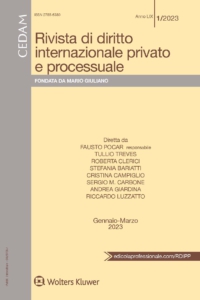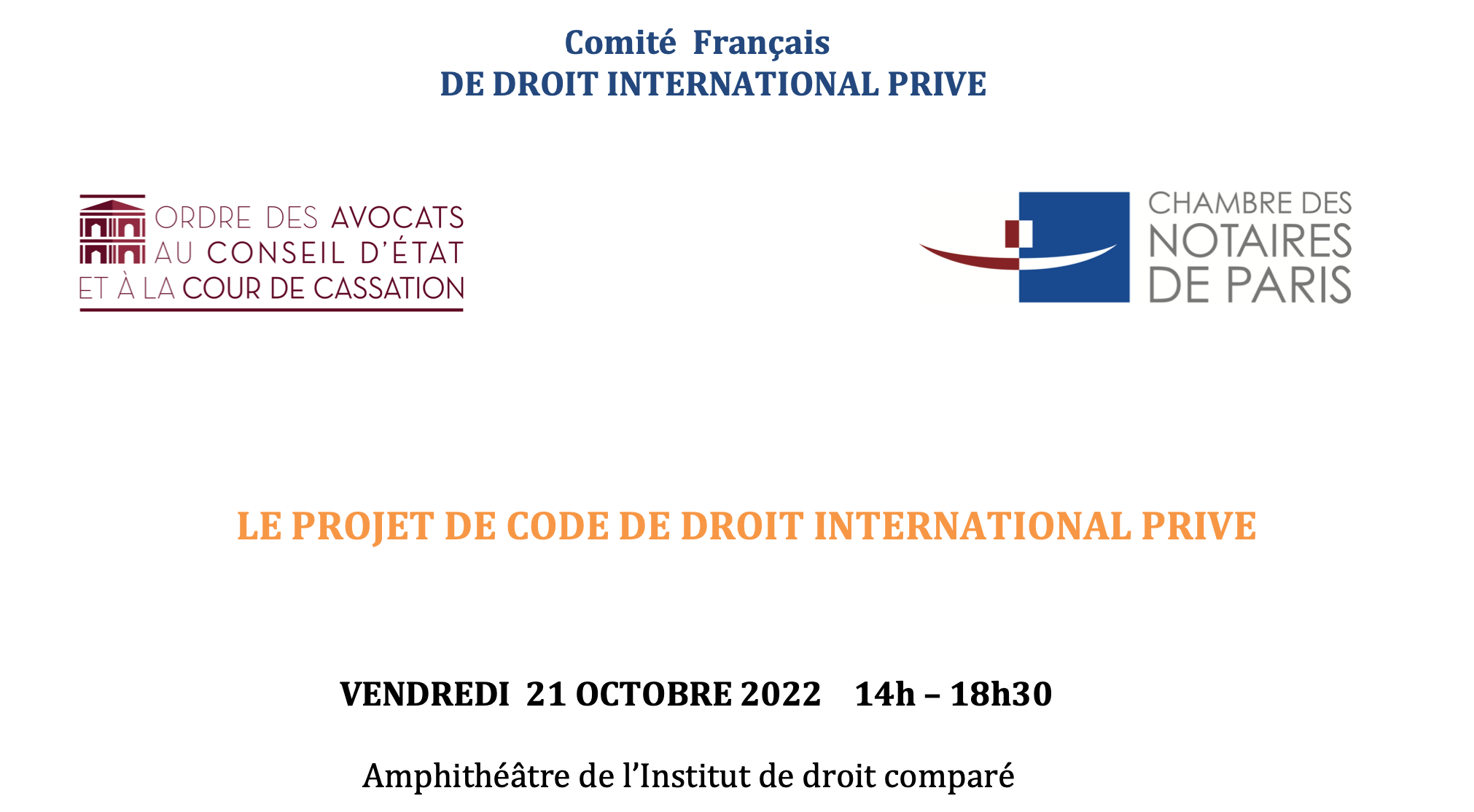The CJEU on Procedural Rules in Child Abduction Cases: private international law and children’s rights law
Comment on CJEU case Rzecznik Praw Dziecka e.a., C-638/22 PPU, 16 February 2023)
Written by Tine Van Hof, post-doc researcher in Private International Law and Children’s Rights Law at the University of Antwerp, previously published on EU live
The Court of Justice of the EU has been criticised after some previous cases concerning international child abduction such as Povse and Aguirre Zarraga for prioritising the effectiveness of the EU private international law framework (i.e. the Brussels IIa Regulation, since replaced by Brussels IIb, and the principle of mutual trust) and using the children’s rights law framework (i.e. Article 24 of the EU Charter of Fundamental Rights and the principle of the child’s best interests) in a functional manner (see e.g. Silvia Bartolini and Ruth Lamont). In Rzecznik Praw Dziecka the Court takes both frameworks into account but does not prioritise one or the other, since the frameworks concur.
Rzecznik Praw Dziecka e.a. concerns Article 3881(1) of the Polish Code of Civil Procedure, which introduced the possibility for three public entities (Public Prosecutor General, Commissioner for Children’s Rights and Ombudsman) to request the suspension of the enforcement of a final return decision in an international child abduction case. Such a request automatically results in the suspension of the enforcement of the return decision for at least two months. If the public entity concerned does not lodge an appeal on a point of law within those two months, the suspension ceases. Otherwise, the suspension is extended until the proceedings before the Supreme Court are concluded. The Court of Justice was asked to rule on the compatibility of this Article of the Polish CCP with Article 11(3) of the Brussels IIa Regulation and with Article 47 of the EU Charter.
Private international law and children’s rights law
As Advocate General Emilou emphasised in the Opinion on Rzecznik Praw Dziecka, (see also the comment by Weller) child abduction cases are very sensitive cases in which several interests are intertwined, but which should eventually revolve around the best interests of the child or children. In that regard, the Hague Child Abduction Convention, as complemented by Brussels IIa for intra-EU child abduction situations, sets up a system in which the prompt return of the child to the State of habitual residence is the principle. It is presumed that such a prompt return is in the children’s best interests in general (in abstracto). This presumption can be rebutted if one of the Child Abduction Convention’s exceptions applies. Next to these instruments, which form the private international law framework, the children’s rights law framework also imposes certain requirements. In particular, Article 24(2) of the EU Charter, which is based on Article 3 of the UN Convention on the Rights of the Child, requires the child’s best interests (in abstracto and in concreto) to be a primary consideration in all actions relating to children. The Court of Justice analyses Article 3881(1) of the Polish CCP in light of both frameworks. The Court’s attentiveness towards private international law and children’s rights law is not new but should definitely be encouraged.
The private international law framework
The Court of Justice recalls that, for interpreting a provision of EU law, one should take into account that provision’s terms, its context and the objectives pursued by the legislation of which it forms part. To decide on the compatibility of the Polish legislation with Article 11(3) Brussels IIa, the Court of Justice thus analyses the terms of this provision, its context (which was said to consist of the Child Abduction Convention) and the objectives of Brussels IIa in general. Based on this analysis, the Court of Justice concludes that the courts of Member States are obliged to decide on the child’s return within a particularly short and strict timeframe (in principle, within six weeks of the date on which the matter was brought before it), using the most expeditious procedures provided for under national law and that the return of the child may only be refused in specific and exceptional cases (i.e. only when an exception provided for in the Child Abduction Convention applies).
The Court of Justice further clarifies that the requirement of speed in Article 11(3) of Brussels IIa does not only relate to the procedure for the issuing of a return order, but also to the enforcement of such an order. Otherwise, this provision would be deprived of its effectiveness.
In light of this analysis, the Court of Justice decides that Article 3881(1) of the Polish CCP is not compatible with Article 11(3) Brussels IIa. First, the minimum suspension period of two months already exceeds the period within which a return decision must be adopted according to Article 11(3) Brussels IIa. Second, under Article 3881(1) of the Polish CCP, the enforcement of a return order is suspended simply at the request of the authorities. These authorities are not required to give reasons for their request and the Court of Appeal is required to grant it without being able to exercise any judicial review. This is not compatible with the interpretation that Article 11(3) Brussels IIa should be given, namely that suspending the return of a child should only be possible in ‘specific and exceptional cases’.
The children’s rights law framework
After analysing the private international law framework, the Court of Justice addresses the children’s rights law framework. It mentions that Brussels IIa, by aiming at the prompt adoption and enforcement of a return decision, ensures respect for the rights of the child as set out in the EU Charter. The Court of Justice refers in particular to Article 24, which includes the obligation to take into account, respectively, the child’s best interests (para 2) and the need of the child to maintain personal relations and direct contact with both parents (para 3). To interpret these rights of the child enshrined in the EU Charter, the Court of Justice refers to the European Court of Human Rights, as required by Article 52(3) of the EU Charter. Particularly, the Court of Justice refers to Ferrari v. Romania (para 49), which reads as follows:
‘In matters pertaining to the reunification of children with their parents, the adequacy of a measure is also to be judged by the swiftness of its implementation. Such cases require urgent handling, as the passage of time can have irremediable consequences for the relations between the children and the parent who does not live with them.’
Unfortunately, the Court of Justice does not explicitly draw a conclusion from its analysis of the children’s rights law framework. Nevertheless, it can be concluded that the Polish legislation is also incompatible with the requirements thereof. In particular, it is incompatible with both the collective and the individual interpretation of the child’s best interests.
On a collective level, Article 3881(1) of the Polish CCP is contrary to the children’s best interests since it does not take into account that international child abduction cases require ‘urgent handling, as the passage of time can have irremediable consequences for the relations between the children and the parent who does not live with them’ (as has also been acknowledged by the ECtHR as being in the best interests of children that have been abducted in general).
On an individual level, it is possible that an enforcement of the return decision is contrary to the child’s best interests and that a suspension thereof is desirable. However, Article 3881(1) of the Polish CPP is invaluable in that regard (see also Advocate General Emilou’s Opinion on Rzecznik Praw Dziecka, points 77-92). First, the Article exceeds what would be necessary to protect a child’s individual best interests. Indeed, under that Article, the authorities can request the suspension without any motivation and without any possibility for the courts to review whether the suspension would effectively be in the child’s best interests. More still, the provision is unnecessary to protect a child’s individual best interests. Indeed, a procedure already existed to suspend a return decision if the enforcement would be liable to cause harm to the child (Article 388 of the Polish CCP).
Conclusion
In this case, the private international law and the children’s rights law framework concurred, and both preclude the procedural rule foreseen in Article 3881(1) of the Polish CCP. The Court of Justice can thus not be criticised for prioritising the EU private international law framework in this case. Nevertheless, the Court of Justice could have been more explicit that the conclusion was reached not only based on the private international law framework but also on the children’s rights law framework.
Finally, the Brussels IIb Regulation, which replaced Brussels IIa as from 1 August 2022, made some amendments that better embed and protect the child’s best interests. It provides inter alia that Member States should consider limiting the number of appeals against a return decision (Recital 42) and that a return decision ‘may be declared provisionally enforceable, notwithstanding any appeal, where the return of the child before the decision on the appeal is required by the best interests of the child’ (Article 27(6)). While the Polish provision was thus already incompatible with the old Regulation, it would certainly not be compatible with the new one. To prevent future infringements, legislative reform of the Polish CCP seems inevitable.


